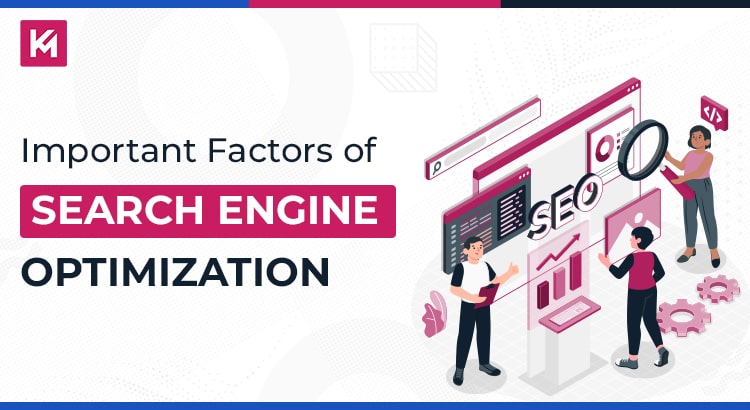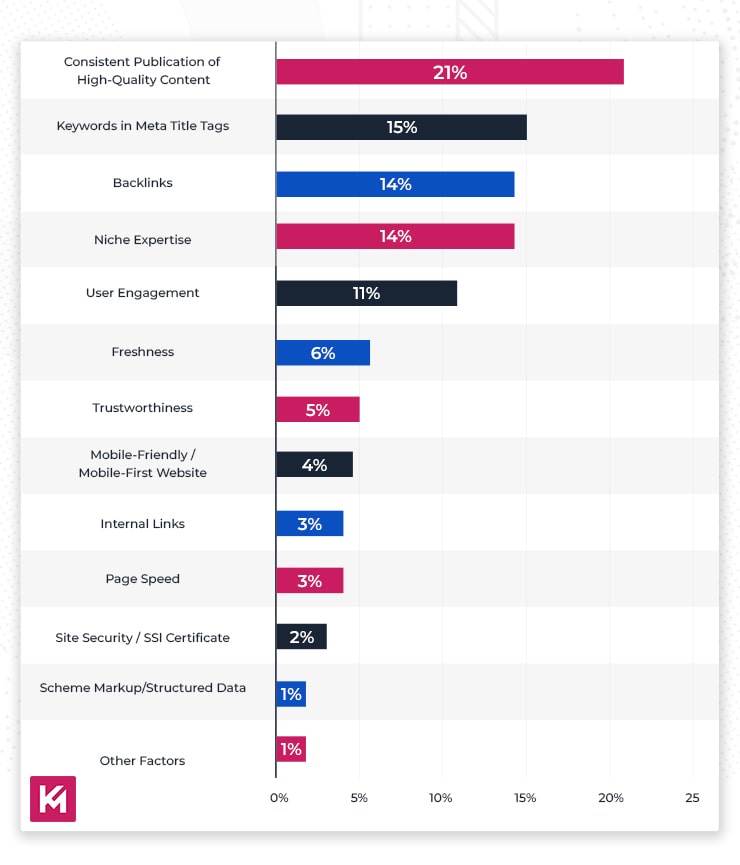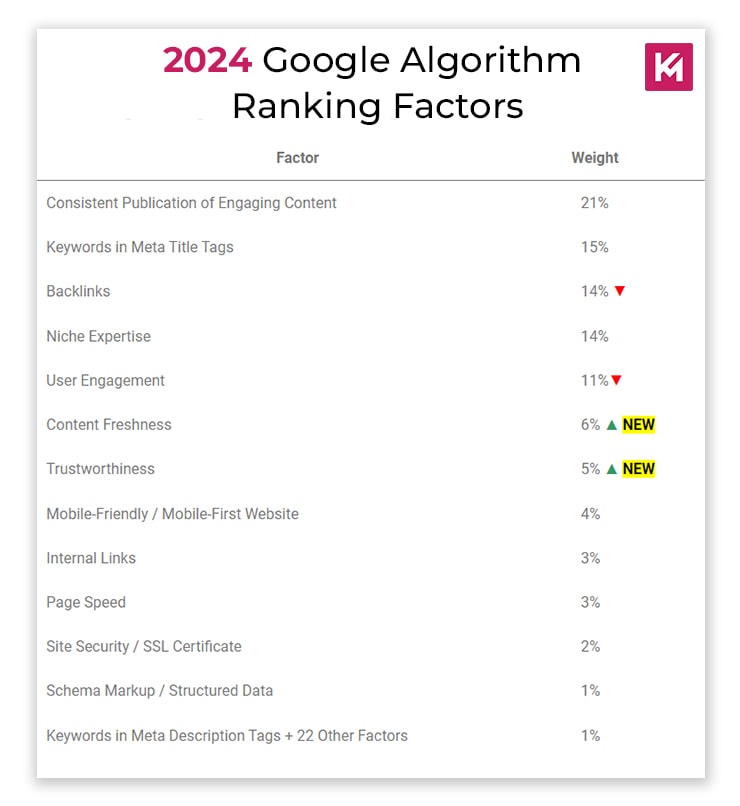A search engine has many evaluation processes when it comes to evaluating a web page’s value, and the term is commonly known as “Page’s Authority.”
Higher page authority means the better chance you have for top ranking on search engines. It can be very difficult to explain why one page’s authority is more than that of another page for any newcomer. However, much of this is due to how search engines measure authority.
Those new to the area of SEO (Search Engine Optimization) may have a hard time understanding the science behind search engine algorithms and their impact on page value assessment.
Each search engine has its own algorithm-based guidelines to determine the page authority of a particular website and analyze it along with organizing website rankings based on those guidelines.
The exact method of how search engine algorithms access page authority still remains a secret to the public; however, it can be assumed that there are elements of human logic behind these assessments.
Search Engine Ranking Factors Percentage
2024 Google Algorithm Ranking Factors
1. Content
As you must have heard the saying, “Content is King.” It is undeniable that well-researched, well-structured content improves page authority. This is why, in the field of Internet Marketing, a lot of focus is put on optimizing article titles and content.
2. Indexing
Indexing a website’s pages by the search engine is another important factor to consider when determining a site’s page authority. When a web crawler goes through a website, it stores the information based on the site’s indexing. If your site is indexed properly, it will be easier for search engines to rank your site.
3, Domain Age
The older a webpage, the more its authority. To say precisely the age and authority of a website go hand in hand may sound unconvincing, but research has shown this to be true. This theory might not be true for all search engines, but we know Google likes older pages better than new pages.
4. Backlinks Relevance
The significance of the subject matter of websites linking back to a specific webpage is another important factor that helps improve page authority. Web pages that have high-quality backlinks from sites in the same area of interest are similar to academic papers that reference other papers in the same field.
When backlinks share relevance, this sends signals to search engines saying the page has authority. It’s said that some search engines have over two hundred variables for determining rank. Hence, the points mentioned above are only a starting place for understanding how search engine rankings work.
5. Link Authority
A large number of other websites with higher page authority linking back to a webpage increases passes-on value, thus increasing a website’s page authority. It’s by this principle that Search engines evaluate the trust factor of the webpage.
If you are searching for a website design Toronto company, then look no further and contact Kinex Media, which specializes in creating reasonably priced websites that promote business without sacrificing on-page style and design.
6. A secure and easily accessible website
The most important and crucial factor that could be the reason for your downfall or upgrade is the accessibility and safety that come with your site interface. If your user feels safe and comfortable, then you can make them stay forever.
This is ensured through:
- A website made with a good-coded website constructor.
- A robots.txt file tells Google where it can and cannot search for information about your site.
7. Page Speed
Speed is one of the most important factors that can make or break your business. Even if you offer great products and services, the need remains for your audience to know and reach you. This won’t be possible if your site frustrates the customer while it’s getting loaded. And the lead makes a move out of your funnel instead.
Studies show that eCommerce sites are expected to get loaded within two or fewer seconds; otherwise, the majority of explorers shift.
8. Mobile-friendliness
More people use mobile devices than desktops to access the web, and that’s one reason there’ve been changes in how Google ranks search results.
Things to consider are:
- Do you have a responsive site that automatically resizes to fit the device?
- Use big fonts for effortless reading on a small screen.
- Include accessible menus so your site is easy to navigate.
- Ensure that ads don’t hide essential content.
- Whether you choose to go for Google AMP or not, you must be sure that your site is 100% optimized for mobile devices.
9. User experience
Google and other search engines have a very observant and ever-growing algorithm that keeps track of each trend without fail. These trends or indications recorded by Artificial intelligence for ranking purposes are termed “RankBrain Signals.”
These signals are the integration of the following:
- Click-through rate: search results show the percentage of people who click to visit your site after an entry.
- Bounce rate (particularly pogo-sticking): the number of people clicking on your page and quickly returning to the search results.
10. SOCIAL SIGNALS
Social signals are referred to as those indications that SEO picks when you share your content on social platforms. The 23-million-share study by Cognitive SEO found a definitive link between social shares and search engine ranking.
This factor is not directly related to SEO success as compared to others mentioned above, but it is still interlinked and cannot be ignored in any sense.
11. Content Quality and Relevance
Creating Captivating Content
In the vast realm of the internet, it’s not just about words on a page; it’s about creating content that truly connects with your audience. Quality content is the foundation of a great website. It’s not only about keywords; it’s about giving valuable, relevant information that your visitors are searching for.
The Art of Quality Content
Your journey begins with research. Dive deep into your topic, explore various angles, and uncover the most up-to-date information. Make your content informative, engaging, and understandable. Proper grammar and formatting are your allies here – they ensure your content is not only informative but also easy on the eyes.
Visual Appeal Matters
Words alone can’t be enough. Include different multimedia elements to improve the user experience. Visual aids not only improve your content but also help in sending the right message with a lot of impact.
Meeting User Expectations
Remember, content isn’t just about words; it’s about meeting user intent. Identify what your audience is searching for and provide them with the answers they seek. Relevance is the name of the game here.
12. Keywords and SEO
Mastering the Keyword Game
Keywords are the key to unlocking SEO success. They’re the phrases that people are searching for on the search engines. Understanding their correct usage can enhance your page’s authority.
Keyword Research Essentials
Begin with thorough keyword research using tools like Google Keyword Planner. This helps you identify the terms and phrases relevant to your niche. Focus on long-tail keywords, which are longer, specific phrases that capture the essence of what users are looking for.
Keyword Placement
Once you’ve found your keywords, you should use them appropriately. Incorporate keywords naturally within your content. Don’t include keywords a lot of times in your content; you must include them at appropriate positions.
13. On-Page SEO
The Building Blocks of On-Page SEO
Optimizing individual web pages for search engines is like laying a strong foundation for your site’s SEO success.
Meta Magic
Write user-centric meta descriptions and titles on every webpage. These are your site’s first impressions to search engine users, so make them count.
Structure with Headers
Use header tags (H1, H2, H3) to structure your content. This not only improves readability but is an aid for grasping the hierarchy of your information.
Internal Linking
Include internal links in your site to help your readers with the relevant content. It’s like a roadmap for both visitors and search engine crawlers.
Clean URLs
Make sure that your URLs are comprehensive and keyword-rich. Clear, concise URLs are not only user-friendly but also SEO-friendly.
Does your website have the potential for success? Find out with our free assistance!:
14. Off-Page SEO
Building Bridges to Authority
Off-page SEO is all about building your website’s authority through external factors.
The Power of Backlinks
Acquiring high-quality backlinks from great websites will boost your Off-page SEO practices. It’s like having respected colleagues vouch for your expertise.
Guest Posting and Outreach
Utilize guest posting and outreach to promote your content. Connect with influencers in your niche and get your content out there.
The Vigilant Watch
Monitor your backlink profile at constant intervals. If you find low-quality links, use the Disavow tool to keep your profile clean.
In the world of SEO, it’s not just about what’s on your website but also how the wider internet ecosystem perceives and interacts with your content. By mastering both on-page and off-page SEO, you’re laying a solid foundation for your site’s success.
15. Technical SEO
The Digital Infrastructure
Technical SEO focuses on optimizing your website’s structure for search engines.
Need for Speed
Page speed is an important part of technical SEO. Users want the websites to open swiftly, so optimizing the website for speed is paramount. This involves compressing images and taking the help of content delivery networks (CDNs).
Mobile-Responsiveness
With the surge in mobile device usage, a mobile-responsive website is no longer an option – it’s a necessity. Your site must be optimized for different digital devices. This ensures that your visitors have a smooth experience on all devices.
XML Sitemaps
Creating an XML sitemap is like giving search engines a map of your site’s structure. It helps search engines understand how your pages are organized, ultimately improving your site’s ranking.
Link Maintenance
Keep a watchful eye on your site for broken links. Broken links may not be good for your audience and can even harm your SEO efforts. Regularly check for and fix any links that lead to dead ends.
16. Local SEO
Navigating Local Terrain
Local SEO is crucial for businesses with a physical presence in specific locations.
Google My Business
You should work on your Google My Business listing. This is your digital storefront, and ensuring it’s complete and accurate can make a significant difference in local search results.
Customer Reviews
Make sure that your clients write good reviews for your website and respond to them promptly as well. Great customer reviews can improve your authority, and replying to critical reviews conveys how serious you are about providing a good experience to your customers.
Local Keywords
Include location-specific keywords in your content to target users in specific geographic areas. It will ensure that you find a top position in the local searches.
17. Content Freshness
The Evergreen Challenge
In the dynamic world of the internet, keeping your content fresh is essential.
Updating Old Content
Older blog posts can still be valuable. Optimize them with the latest information, data, and knowledge. It’s like giving a new lease of life to your existing content.
Regular Publishing
Consistency matters. Publish new content on a regular schedule to improve your user engagement. Fresh content keeps your website relevant.
Spring Cleaning
Don’t forget to de-clutter. Remove or redirect outdated and irrelevant content to maintain a clean and organized website.
18. User Engagement Metrics
Engaging with Your Audience
User engagement on your website is an indirect yet essential factor for SEO.
Measuring User Engagement
Use tools like Google Analytics to monitor metrics such as time on page, pages per session, and bounce rate. These metrics will tell you how users interact with your site.
Improving User Experience
Enhance your site’s user experience by providing engaging and relevant content. Make navigation intuitive and aim to reduce bounce rates.
Encouraging Interaction
Encourage user interaction by enabling social sharing. This will also provide valuable feedback to you.
19. Schema Markup
The Language of Search Engines
Schema markup is an aid for search engines to grasp the content on your website.
Implementing Schema Markup
Use schema markup to highlight essential information, such as reviews, events, and FAQs. This structured data provides context to search engines as well.
Validation and Testing
Before implementing schema markup, ensure it’s accurate and error-free. Use Google’s Structured Data Testing Tool to test your markup and make necessary adjustments.
Check out these blogs to learn more about how to optimize your digital presence:
HOW IS GA4 DIFFERENT FROM UNIVERSAL ANALYTICS?
20. SEO Analytics and Monitoring
Data-Driven Decisions
Regularly analyzing your SEO efforts is crucial for ongoing improvement.
Tools for Insight
Utilize tools like Google Analytics and Google Search Console to track your site’s performance. These tools offer valuable data on your site’s traffic, user behaviour, and search rankings.
Setting Goals
Set up custom reports and goals within your analytics tools to measure specific Key Performance Indicators (KPIs). This allows you to focus on the most important KPIs for your organization.
Adapt and Evolve
Data-driven insights should inform your SEO strategy. Be prepared to make adjustments based on the data and user behaviour to continually enhance your website’s performance and page authority.
Conclusion
In the ever-evolving landscape of SEO, understanding the pivotal factors that shape a website’s page authority is the key to unlocking its true potential. As we wrap up our exploration of these crucial elements, it’s evident that SEO is not a one-size-fits-all endeavour. Rather, it’s a dynamic and multifaceted discipline.
Content, the reigning king, must continue to provide helpful information for the users. Keywords remain the bridges that connect search intent to your content, ensuring it’s discoverable. On-page and off-page SEO strategies bolster your website’s foundation, extending your reach and influence. Technical SEO acts as the digital infrastructure that keeps your site running smoothly, while local SEO helps businesses thrive within their communities. Content freshness, user engagement metrics, schema markup, and the vigilant monitoring of SEO analytics round out the toolkit of a modern SEO practitioner.
In the pursuit of enhancing page authority, website owners must embrace the dynamism of the digital world. Adaptation and evolution are not just recommended; they are essential. The interplay of these factors, combined with a data-driven approach, empowers website owners to not only climb the ranks in search engine results but also to provide users with the high-quality experience they deserve.
As the digital landscape continues to evolve, staying ahead in the SEO game means staying informed, staying innovative, and staying true to the principles that drive success: content that speaks to your audience, strategic keyword usage, technical prowess, and a commitment to delivering value. By mastering these elements, you’ll not only boost your website’s page authority but also secure a lasting presence in the digital realm. SEO is not a static destination; it’s a journey, and this journey never truly ends.



